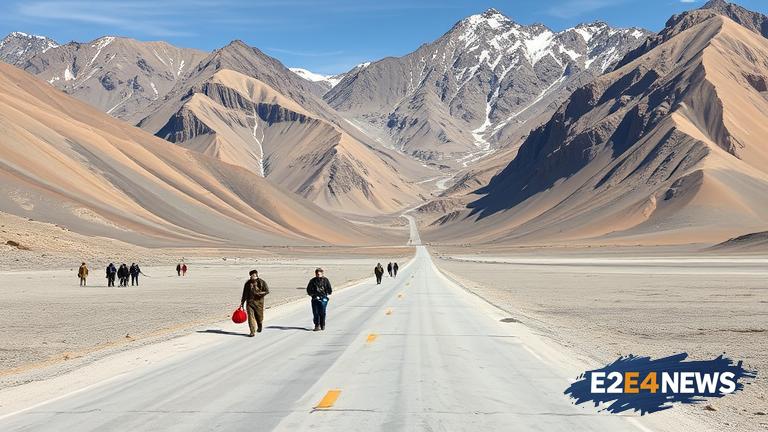The Khunjerab Route, also known as the Karakoram Highway, has been closed indefinitely due to ongoing protests in Sost, a town in the Gilgit-Baltistan region of Pakistan. The protests, which began earlier this week, are being held against the alleged mistreatment of a local trader by the authorities. The trader, who was reportedly detained by the police, has become a symbol of the frustrations felt by the local community against the government. The protesters, who are mostly traders and transporters, are demanding justice for the detained trader and an end to what they see as harassment by the authorities. The closure of the Khunjerab Route has significant implications for trade and tourism between Pakistan and China. The route is a vital artery for the exchange of goods and services between the two countries, and its closure is likely to cause significant economic losses. The protests have also disrupted the supply of essential goods, including food and fuel, to the region. The government has so far failed to negotiate with the protesters, and the situation remains tense. The Khunjerab Pass is the highest paved border crossing in the world, and its closure has also affected the movement of tourists and travelers. Many tourists, who had planned to visit the region, are now stranded, and the local tourism industry is likely to suffer significant losses. The protests in Sost are not an isolated incident, but rather a symptom of a larger problem. The region has long been plagued by issues of governance, corruption, and lack of development. The local community has been demanding greater autonomy and better representation in the government, but their demands have so far been ignored. The closure of the Khunjerab Route has also raised concerns about the security of the region. The protests have been peaceful so far, but there are fears that the situation could escalate into violence if the government does not take immediate action to address the grievances of the protesters. The government needs to take a proactive approach to resolve the issue and address the concerns of the local community. This includes engaging in dialogue with the protesters, releasing the detained trader, and taking steps to improve governance and development in the region. The international community, including China, needs to take notice of the situation and encourage the government to take immediate action to resolve the crisis. The closure of the Khunjerab Route is not just a local issue, but has significant regional and global implications. It highlights the need for greater cooperation and understanding between Pakistan and China, and the importance of addressing the concerns of local communities. The situation in Sost is a wake-up call for the government to take immediate action to address the grievances of the local community and to ensure that the region is developed and governed in a fair and transparent manner. The government needs to take a long-term approach to resolve the issue, rather than just focusing on short-term solutions. This includes investing in the development of the region, improving governance, and ensuring that the local community has a greater say in the decision-making process. The closure of the Khunjerab Route is a significant setback for the region, but it also presents an opportunity for the government to take a fresh look at its policies and to work towards a more sustainable and equitable solution. The international community needs to support the government in its efforts to resolve the crisis and to promote greater cooperation and understanding between Pakistan and China.
